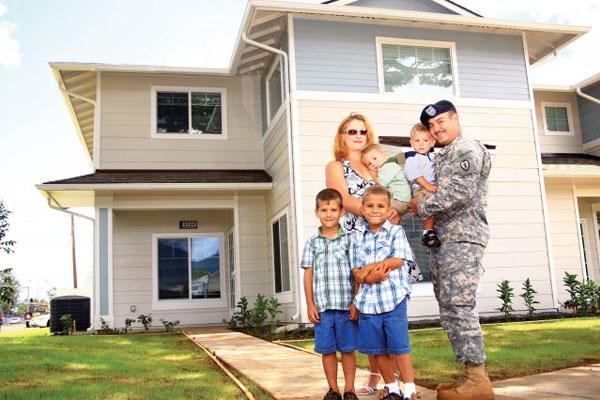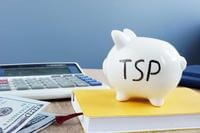This content is provided courtesy of USAA.
Figure these 10 home expenses into your budget when you're planning to make the move.
Buying your first home looks pretty appealing right now. Interest rates are low, and for-sale signs are touting reduced prices in yards across the country. While it's tempting to compare a mortgage payment to rent, the price of home ownership is made up of additional home expenses that aren't so apparent.
"Getting into a house is only the first step," says J.J. Montanaro, CERTIFIED FINANCIAL PLANNER™ practitioner with USAA. "You want to be able to stay in the house. You've got to be able to meet all costs."
To do so, Montanaro recommends creating a monthly budget for any house you're considering buying. Use this guide to 10 homeownership costs to know what to expect.
1. Closing costs
These average 3% to 5% of the value of a home loan, depending on the home's location and the type of financing you arrange. The totals typically include fees for title insurance, inspections, legal work and payments to your escrow savings account for property taxes and homeowners insurance premiums, says Greg Herb, former regional vice president for the National Association of Realtors and broker and president of Herb Real Estate Inc. of Pennsylvania.
You may be able to save money by asking the seller to pay some of your closing costs, an increasingly popular practice known as a seller assist. Certain government-backed loans limit the amount a seller can pay, so ask your real estate agent or lender for specifics. "In this buyer's market, you have more leverage to ask the seller to cover your closing costs," says USAA CERTIFIED FINANCIAL PLANNER™ practitioner Scott Halliwell.
2. Mortgage payments
If you finance your home, you'll be responsible for a monthly mortgage payment. The payment will go toward the principal (the amount you originally borrowed) and the interest on that principal. The amount of your payment will depend on how much you borrow, the interest rate on your home loan and the amount of time you have to pay off the loan. Use the Federal Housing Administration's handy mortgage calculator to estimate your payment.
"But play it safe," warns Halliwell. "Just because the calculator says you can afford a home doesn't mean you really can. You've got to compare your cash flow to all the extra costs of homeownership."
Added to your monthly mortgage payment could be a payment to build an escrow, or reserve, account. Lenders keep the money on deposit, and then pay local governments and insurance companies when their bills are due. Escrow accounts allow you to budget and save incrementally for the costs of private mortgage insurance, homeowners insurance and property taxes.
"If these expenses aren't part of your monthly payment and included in an escrow account to the mortgage company, you'll need to budget for them and make sure they are paid on time. Having a lender handle them can ensure they are paid properly and on time," says Halliwell.
3. Private mortgage insurance
If your down payment is less than 20% of the home's price, you usually are required by the lender to take out a private mortgage insurance policy. This policy protects lenders in case you default on your loan. According to the trade group Mortgage Insurance Companies of America, for a $200,000 home, the monthly premium costs between $50 and $100. The bigger your down payment, the lower your monthly payment for private mortgage insurance.
Once you've paid off 20% of your home's original value, you can request removal of the PMI requirement in writing with the lender. If you're behind on your mortgage payments or have other liens on your home, you may not qualify.
4. Homeowners insurance
Homeowners insurance is critical to protecting your home against perils, like natural disasters and theft. "This coverage is critical in ensuring you're able to cover the rebuilding or repair costs in the event of a major catastrophe," says Halliwell.
In addition to protecting the structure and its contents, homeowners insurance also provides liability and medical coverage if someone is injured on your property.
If you borrow money from a mortgage lender, you're required to purchase homeowners insurance. According to the Insurance Information Institute, the average home insurance premium costs around $800 per year. Before you buy a house, ask your insurance agent for a quote so you can budget accordingly, suggests Montanaro. Depending on where you live, you also should consider adding earthquake and flood coverage policies.
5. Property taxes
Local governments charge real estate taxes to pay for public expenses, such as schools, parks and sidewalks. Municipalities usually calculate a homeowner's annual tax by multiplying the local tax rate by the official assessed value of the home. You can find this public information on your tax assessor's website.
The seller or seller's real estate agent can tell you the current annual tax on a property. Also ask when the next assessment is scheduled and whether it will be increased by the sale of the home, suggests Halliwell.
6. Utilities
Once you find the right house, Montanaro recommends asking the seller for a record of a year's worth of utility bills. This way, you can budget for heating, cooling, electricity, natural gas and water expenses. Be sure to account for any differences in family size. A single grandmother will use far less water, for instance, than a family of four.
7. Maintenance
Once you own a home, you can't call the landlord for repairs, which is why it's important to know the condition of a residence before you sign on the dotted line. A qualified home inspector can walk you through what to expect. "Based on the home inspection report, you'll get a pretty good snapshot of what to plan for — the life expectancy of major components, like the roof, heating, plumbing, electrical," says Herb.
Even so, you should still have a line item in your budget for ongoing maintenance. Whether it's replacing furnace filters, staining or refinishing decks, painting exterior trim or refreshing the plants and mulch in your landscaping, there's a pretty high likelihood that something will regularly happen that will cost you money.
Owning a home magnifies the importance of maintaining an emergency fund equivalent to at least three to six months of routine expenses, says Montanaro.
8. Making-it-mine expenses
"One of the biggest categories I've seen catch people off-guard is what I call 'making-it-mine,'" says Halliwell. You might fall in love with a house, but when you move in: Your furniture doesn't fit, you don't like the kitchen counter, and you'd prefer wood floors to carpet.
"You could easily spend thousands of dollars if you're not careful," he warns. Halliwell suggests making a list of what you might need to buy once you move in — furniture, rugs and window treatments, for example — and then creating a budget. Too often, says Halliwell, buyers struggle to make a down payment and then put their making-it-mine expenses on a credit card. "The next thing you know, they're buried in credit card debt, and what started out as a happy event turns quickly negative," he says.
9. Landscaping
Now that you have a yard, you have the expense of getting it in shape and maintaining it, such as planting flowers, trimming trees and sodding a lawn.
"After I bought my first house, I realized, 'I have a yard now!'" recalls Richard Novak, USAA assistant vice president of home event management. "I needed yard equipment — a lawn mower, weed wacker, rakes. It's easy to forget about those expenses."
10. Other costs to consider
"As rewarding as home ownership can be, it does seem to come with an endless stream of expenses that fall into the 'other' category on your budget," says Halliwell. Whether it's a new home security and monitoring system or weekly trips to the local home improvement store, ensure you've built some wiggle room into the budget for your new home.
You'll also need to factor in homeowner association dues if you are purchasing a condo or townhome or live in a community with HOA fees.
Finally, don't forget about the cost of purchasing extra life insurance. For many families, having enough coverage to pay off the mortgage at the death of the primary breadwinner is almost a necessity. "A new home is definitely a life event," says Montanaro, "and that requires a fresh look at your life insurance coverage."
Extra Tip: Pay More to Spend Less
While many homeowners strive to cut their monthly expenses, there's a way spending more each month will save you money in the long run.
Consider making extra payments on your mortgage to reduce the principal. The quicker you pay down the principal, the less interest you'll pay on the loan.
"Even small amounts can make a huge difference," explains J.J. Montanaro, CERTIFIED FINANCIAL PLANNERTM practitioner with USAA. "I encourage people to round up."
Say you have a $140,000, 30-year mortgage at 5% interest; the required monthly payment for principal and interest is roughly $752. If you round that up to $800 each month, you'll knock four years off your mortgage and save about $20,000 in interest over the life of the loan. Even if you sold the house after 10 years, you'd owe about $7,000 less on the balance of the mortgage.
Ready to Shop for a New Home?
The first step in the VA loan process is to shop around for a lender. We make the process easy by matching you with up to five lenders for rate quotes - no obligations or credit checks required.




